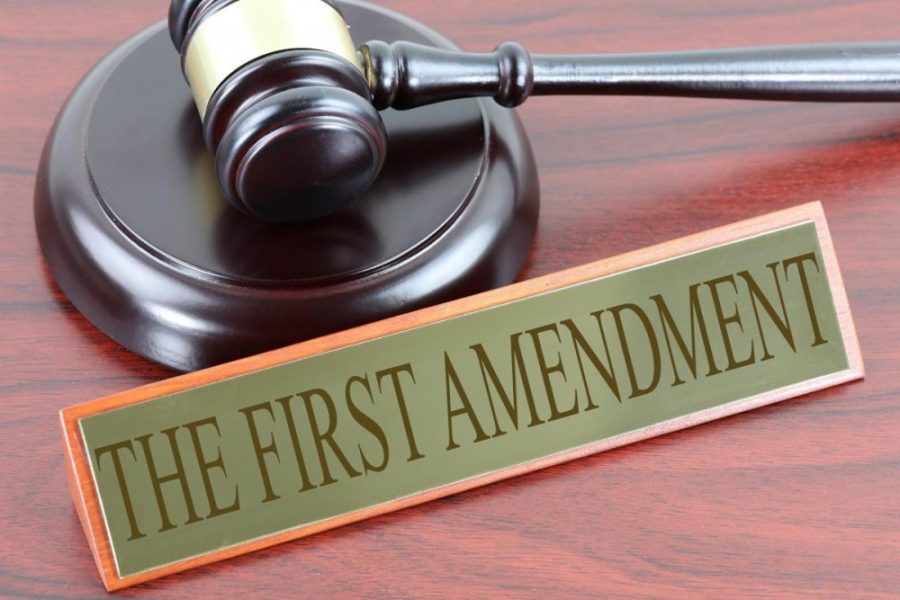As a student newspaper, the Daily Wildcat is deeply concerned not just about our right to free speech and press as a newspaper, but the state of free speech on campus as a whole.
While what exactly constitutes free speech has always been a fine line, it’s nevertheless a line that must be carefully monitored to make sure free speech, a constitutionally protected right, is not suppressed.
Technically, the First Amendment states Congress “shall make no law … abridging the freedom of speech.” It has been expanded by the U.S. court system to include protection not to speak (West Virginia Board of Education v. Barnette), to use offensive words and phrases to convey political messages (Cohen v. California) and to engage in symbolic speech (Texas v. Johnson and United States v. Eichman). Courts have decided freedom of speech does not protect speech that incites actions that would harm others (Schenck v. United States) or the right to distribute obscene material (Roth v. United States).
College campuses especially are usually understood to be places to share ideas and viewpoints, and it’s only natural that sometimes those ideas and viewpoints will be in opposition to each other. Those situations would ideally be treated as chances to learn civil disagreement and debate skills, but lately such situations have spiraled out of control.
According to the Foundation for Individual Rights in Education, a nonprofit whose mission is to “defend and sustain individual rights… at America’s colleges and universities” including freedom of speech, a 2019 report found that 89.7 percent of American colleges maintain policies that restrict, or have the potential to restrict, student and faculty expression.
In February 2019, the UA received FIRE’s highest rating – a green light for free speech. One of UA’s polices on the use of campus reads, “The purpose of this policy is to respect the Campus Community’s rights to free speech and expressive activity within public and designated public forums, while preserving public health, safety, and welfare; the normal business uses of the campus; and the rights of others to legitimately use and enjoy the campus.”
Yet in light of recent events, FIRE issued another statement: “While FIRE continues to gather facts, guiding principles should be restated. As a public institution, the University of Arizona is fully bound by the First Amendment. The First Amendment protects the right of public college students to engage in peaceful protest. This right protects student speech that listeners may find deeply offensive. Taken alone, the content of the speech at issue here — calling Border Patrol agents ‘murder patrol’ and ‘an extension of the KKK,’ for example — is plainly protected by the First Amendment.”
The statement went on to say “The First Amendment also protects the right of public college students to hear from the speakers of their choice free from the heckler’s veto. Attempts to prevent a speaker from being seen and heard by an audience are not protected by the First Amendment … There is simply not enough information in the brief videos that have so far been made public to confirm that the protesters’ conduct, taken as a whole, constituted unprotected disruption.”
The statement concluded, “These facts present a close call between competing First Amendment interests. In such a situation, criminal prosecution is a heavy hammer … filing criminal charges against students for campus speech that may be protected by the First Amendment will chill protected student speech. Students will rationally decide to self-censor rather than risk the possibility of criminal charges.”
As your student newspaper, the Daily Wildcat calls on the University of Arizona community, from President Dr. Robert C. Robbins to each student here, to help protect the vital institution of free speech. Students should never be punished for exercising free speech rights, and colleges should remain places where free speech and the expression and exchange of ideas flourish.
And if you feel compelled to allow the suppression of certain kinds of speech you don’t agree with, think of the poem “First They Came” by Martin Niemöller and remember, if you don’t protect everyone’s right, eventually there will be nobody left to stand up for your right.
Follow the Daily Wildcat on Twitter









